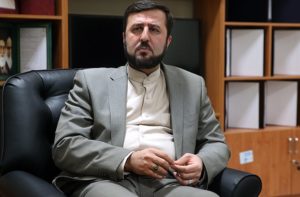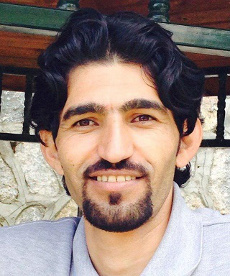Gharibabadi: “Unrivaled Social and Cultural Opportunities” for Children in Judicial System Which Executes Minors
Just weeks after the Iranian judiciary’s execution of two alleged juvenile offenders over widespread international protest, Kazem Gharibabadi, International Deputy of the Iran judiciary’s Human Rights Center, has publicly defended the judicial system’s treatment of minors. Before a February 8 diplomatic audience at Tehran’s Center for Juvenile Training and Reform, Gharibabadi claimed that the “social and cultural opportunities afforded to children” in Iran’s system “are nearly in a league of their own.”
 Gharibabadi stated that “the issue of individuals under 18 years of age now has taken on a human rights dimension.” He made no mention of repeated criticisms lodged by international human rights authorities in the recent past, including a joint February 2 announcement by UN experts demanding that “a moratorium on juvenile executions must be adopted without any further delay.”
Gharibabadi stated that “the issue of individuals under 18 years of age now has taken on a human rights dimension.” He made no mention of repeated criticisms lodged by international human rights authorities in the recent past, including a joint February 2 announcement by UN experts demanding that “a moratorium on juvenile executions must be adopted without any further delay.”
According to Gharbibabadi, “A very key point is that in the Islamic Republic, pursuant to rules and regulations, if children between 15 and 18 are sentenced for illegal acts they aren’t held in prisons but rather in Training and Reform Centers.” Abdorrahman Boroumand Foundation has documented 122 executions of juvenile offenders in Iran since the year 2000. Many of these were held in dedicated juvenile facilities before being put to death.
Later in the address, he added that “Children under 15 are not subjected to criminal punishments whatsoever…. Other systems and sentences are used in their cases.” This 15-year standard of maturity is grounded in religious jurisprudence. Based on age of pubescence, it can range as low as 9 for girls. This standard is in clear violation of international norms and laws: the Convention on the Rights of the Child to which Iran is signatory sets the threshold for adult responsibility at 18 years and prohibits execution of any defendant charged for a crime committed under 18.
Gharibabadi told the gathered ambassadors that “Other countries should be aware of Iran’s experience here. We’ve stated that we’re ready to pass our experiences along to other countries and exchange findings.” The apparent openness to engagement with the international community comes just weeks after Gharibabadi’s boss, Judiciary Human Rights Center director Mohammad Javad Larijani, took aim at UN Special Rapporteur on Human Rights in Iran Asma Jahangir, characterizing her work as “incorrect, unjustified, and dispiriting” and “lacking the smallest degree of professional impartiality.”
Access the original Persian reporting at Mehr.
 My Interrogator Said: You Are An Ass, And Asses Do Not Merit Human Rights
My Interrogator Said: You Are An Ass, And Asses Do Not Merit Human Rights